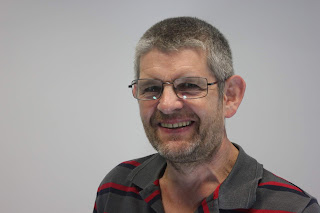By Michael Turner, Policy and Strategy
Manager, Merton Centre for Independent Living
It’s old cliché but time does fly and it's almost a year since I left
my co-production job at SCIE to join Merton Centre for Independent Living.
Most of my career has been about supporting
the development of user involvement. It's a simple idea that when the people
who use a service play a meaningful role in how it is run, it’s probably going
to improve the service and make it more likely that it will give people what
they want and need.
I've worked on spreading this message all
over the country over the past 25 years. Literally from the depths of Devon to
the Highlands of Scotland. I even worked briefly with Disabled people and
services in Russia.
Not just a new word
During my eight years at SCIE, the word
co-production came into fashion as a way to talk about this way of working. I
thought it was a bit of a jargon word and I wasn’t that keen when SCIE first wanted
to talk about co-production rather than user involvement.
But I was persuaded by the idea wasn’t just
sticking a new name on the same old thing. For a jargon word to have meaning,
it has to be linked to doing things differently, and that's where co-production
comes in if it's done properly.
Real co-production is about services
sharing power with Disabled people and professionals working together on a more
equal basis. It has become a well-established
way of working in organisations like SCIE and local authorities like
Oxfordshire County Council and Hammersmith and Fulham - it's even in National
Institute for Health and Care Excellence (NICE) guidance and the Care Act, so
it's almost part of the establishment.
Reality check
One of my first projects with Merton CIL
was a review of adult social care in the borough. It was a real
dose of reality about how social care works on the ground but there was real
hope for it to be the first step towards improving the situation and the
development of a co-production approach.
We're still waiting on this. Since we
published the report the Council has stopped funding our Advice and Advocacy
service. It's
not been the great start to co-production we were hoping for, but we're now
working on a review of housing and Disabled People in the borough.
Co-production will be part of the message again so hopefully we'll have more
luck this time.





